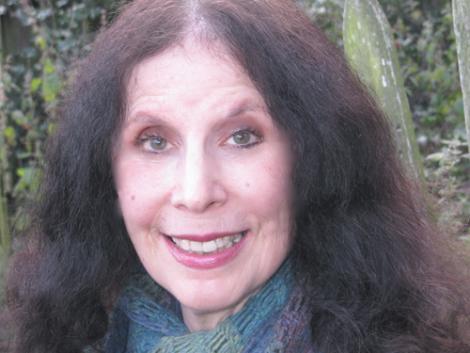The Psychic View – Truth in ‘Beauty’
Mon, 04/10/2017
By Marjorie Young
Movies have always been a happy part of my life; I often finding them inspirational as well as entertaining. Seeing my first Japanese film, ‘Seven Samurai’ as a teen began a life-long fascination with that country, which later became my home for many years.
Sometimes a film’s influence can come unexpectedly. One recent example is ‘Beauty and the Beast.’ It wasn’t something I’d typically be drawn to, but the excellent reviews made me curious. The lavish opening introduced us to a spoiled, cold-hearted, and self-indulgent prince. In the midst of an over-the-top revel, an old woman pleads for shelter from the storm raging outside. The prince responds with scorn. As it turns out, the stranger was a sorceress, who promptly cursed the prince, transforming him into a repulsive creature on the spot. The only way to break the spell, we are told, is if the newly created ‘beast’ can learn to love and be loved in return. However, the odds are against it, the narrator reminds us…because ‘who could love a monster?’
Unexpectedly, those words brought tears to my eyes. Who, indeed, could love a ‘monster’? I was reminded of countless clients, friends, and others who have monumental difficulty accepting love or giving it, believing themselves somehow ‘unworthy.’ This dark view typically stems from childhood neglect or abuse. Even something as ‘simple’ as a parent predicting their child will ‘never amount to anything’ can establish a ‘curse’ every bit as potent as what doomed the young nobleman.
Meanwhile, our heroine Belle is lovely, confident, clever, and determined to shape her own destiny. She offers herself as hostage to the beast when her father becomes his prisoner. Eventually, the girl and her captor learn to see one another in a different light, allowing love to make a beginning. But when the prince declares his feelings and asks if she can possibly return them, she answers ‘how can one love when not truly free?” Again, this struck me as profound. Belle is locked in a castle, but we everyday folk are also prisoners…of our circumstances, our history, the limitations we place upon ourselves, and so much more. Moreover, love is something that cannot be demanded, but only given unreservedly. Her words convince the ‘beast’ to let her go… presuming she never will return.
In a telling contrast, the villain of the tale appears every inch the hero. Gaston is tall, dark, and handsome. Local girls swoon, but his sights are on Belle…though he values her only as a perfect trophy wife. She sees through him, spurning his advances again and again. At first, Gaston strikes us simply as an egotistical buffoon, but we later learn he is truly sinister; ready to lie, manipulate, and destroy all who get in his way.
Eventually, we have our happy ending, of course. Belle returns to save her friend from the mobs led by Gaston. He dies in her arms, but her proclamation of love not only bring him back to life, but returns the castle to its former glory. The couple is reunited and presumably live happily ever after.
Yet the spiritual essence of this ‘tale as old as time’ remains heartfelt and far-reaching. When we cannot accept ourselves, flaws and all, we are eternal prisoners, convinced we are essentially unworthy. Authentic freedom requires embracing our endless potential, unhindered by the false limits others may impose upon us. Achieving such liberation invites a life of fulfillment, love, and glorious possibilities. Rather like a fairy-tale, in fact!
Marjorie is available for readings at the Ballard Sunday Market (weather permitting), her Ballard home, or by phone.
Please email her: myballardpsychic@gmail.com
See her award-winning fantasy/adventure series: www.theboywithgoldeneyes.com
Follow her on Twitter: @psychicmargie


